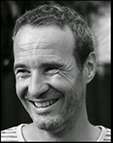A few weeks before the 27th Science Council of the Foundation, we invite you to get to know the members (past and present) of our Science Council. Interview with Bruno Romagny, Research Director, Renewable Resources Economist, IRD .

Why did you become a researcher?
It’s not easy to tell you why I became a researcher (between chance and necessity), but I can tell you why I love this job. One of the main reasons is independence, guaranteed (for how much longer?) by the status of researcher or teacher-researcher. This refers to the need for freedom in the production of scientific knowledge, in the dissemination of this knowledge, and in the ways in which these missions are carried out, which must be protected from censorship or instrumentalization of any kind: political, economic, religious, etc. In 1997, I was recruited as a researcher at Orstom (which became the Research Institute for Development, IRD, at the end of 1998), just after defending my doctoral thesis in economics at the University of Nice Sophia-Antipolis. The transition between the academic world, where I taught and carried out essentially theoretical work, and the world of partnership research in the South was therefore very rapid. As an economist of renewable resources, I started my career in Montpellier working mainly with halieutics. I carried out my first field missions in the South, in Mozambique and then in Côte d’Ivoire with a view to an expatriation to Africa. Expatriation has brought me a lot, both scientific and human: it has enabled me to build solid partnerships, to have easier access to the field, to develop exchanges and collective projects, to supervise students, etc. I have also been able to work in the field for a number of years.
What does the expression "scientific community" mean to you?
I have the feeling of belonging to a scientific community for which the work of a researcher is not limited to collecting indicators, managing one’s career, or obtaining the best financial return, etc. I feel that I belong to a scientific community whose work is based on the creation, debate, sharing and transmission of knowledge. The reforms carried out in France over the last 20 years have moved researchers into an increasingly cumbersome and competitive scientific-administrative machine. A machine that does not meet the expectations of research groups faced with hyper-specialization of knowledge. Belonging to a community that tries to give meaning to the research work means making it live by reintegrating it into its social, political, cultural, ethical, ecological, human environment...
I therefore believe that I belong to a community of researchers working in the field of human and social sciences on issues of nature-society interactions, in partnership, on a Mediterranean scale and with a strong interdisciplinary openness. The Maghreb and the relations between France, European Union and Maghreb play an essential role within this epistemic community. Since 2016, I have been co-director of the International Joint Laboratory (LMI) MediTer "Terroirs méditerranéens" in the framework of its second mandate (2016-2020), with my colleague Saïd Boujrouf from Cadi Ayyad University in Marrakech. The activities of this LMI, based in Morocco, in terms of research, training and expertise, have been contributing, for about ten years, to the dynamism of this scientific community.
What are your ambitions and expectations regarding AF’s Science Council?
I am very happy and honoured to have been asked by Agropolis Fondation to become a member of the Science Council from January 2020, replacing my colleague Philippe Méral, an economist. I hope to live up to the work he has done in recent years within the Council. I look forward to getting to know my new colleagues, the issues to be dealt with and sharing my views with them, even though I have known Marie-Christine Cormier-Salem for a long time. It was Jacques Weber who told me about this geographer who is passionate about biodiversity and marine spatial planning issues. Our paths have crossed several times at the IRD, the last time when I participated at her request in the Scientific Monitoring Committee of the LMI PATEO she co-directed in Senegal.
I hope to enjoy these new functions as a member of the AF SC as much as I have when I was working part-time as a scientific representative for the Director of the "Societies" Department at the IRD headquarters in Marseille. I am very enthusiastic about the idea of renewing my knowledge of research projects and my expertise, through the AF SC, in the service of research, essentially in SHS, which address the issues of agri-food systems transition in the Mediterranean. Finally, I am very interested in discovering or getting back in touch with the laboratories that have a great deal of expertise in these scientific fields in Montpellier, which is open to the international and the Mediterranean.